Village in Tibet autonomous region uses local advantages to boost economic growth
Updated: 2023-09-13 By Daqiong and Palden Nyima (chinadaily.com.cn)  Print
Print 


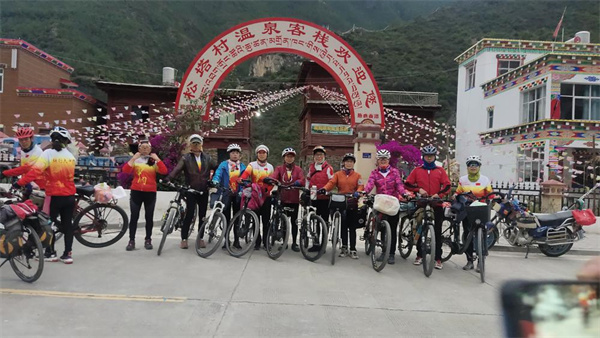
Tourists pose for a photo in Sangthak village in Zayul county in the Tibet autonomous region. [Photo provided to chinadaily.com.cn]
Sangthak village of Zayul county in the Tibet autonomous region has been developing featured industries to financially benefit its rural residents and promote rural vitalization.
In recent years, local villagers have been involved in the businesses of pomegranate plantation, guesthouses, and fungus plantation and collection with the support of the local government, and they are reaping the benefits.
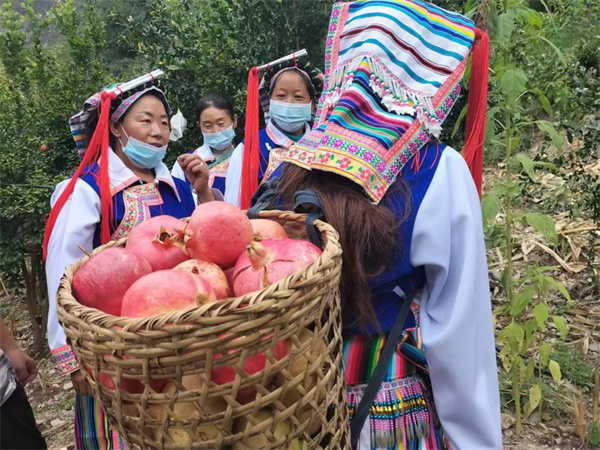
Villagers collect Tunisian pomegranates in Sangthak village in Zayul county in the Tibet autonomous region. [Photo provided to chinadaily.com.cn]
Enriched with natural landscapes and ethnic cultures, and being located along the national highway G219, it is also a tourism destination, and the local villagers have been doing tourism-related businesses to make income.
Zheng Na, Party secretary of Sangthak village, said the more than 530,000 yuan (nearly $73,000) was invested by the local government into a hot-spring hotel project in 2018.
"The hot-spring hotel business has been contracted to a local villager. Now it has six spas, and he distributes a collective dividend of 40,000 yuan to the village every year," said Zheng.
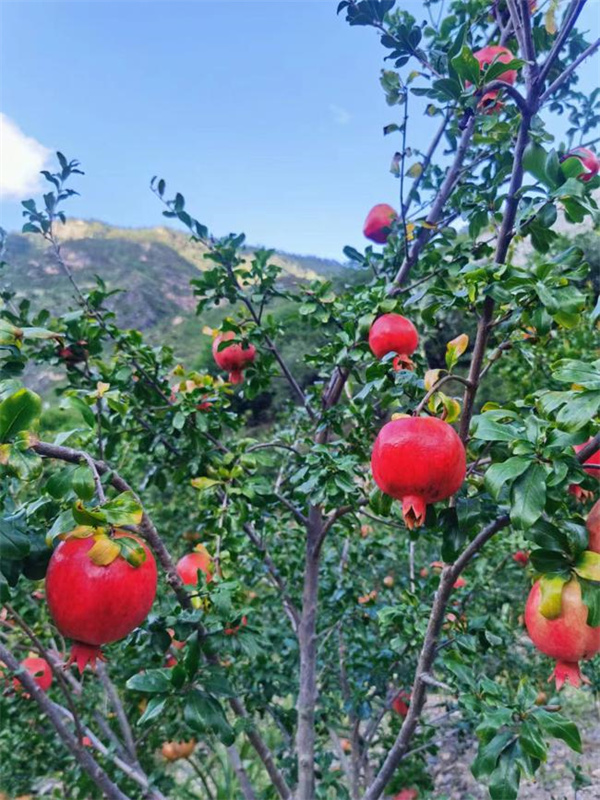
A view of the Tunisian pomegranates in Sangthak village in Zayul county in the Tibet autonomous region. [Photo provided to chinadaily.com.cn]
Sonam Chozom, an operator of the guesthouse in the village, said her guesthouse provides both accommodation and local cuisine for tourists.
"In 2022, my family income generated from the guesthouse and restaurant exceeded 30,000 yuan," she said.
Enriched with plenty of sunshine and water resources, and with big temperature differences between day and night, the village is ideal for planting Tunisian pomegranates.
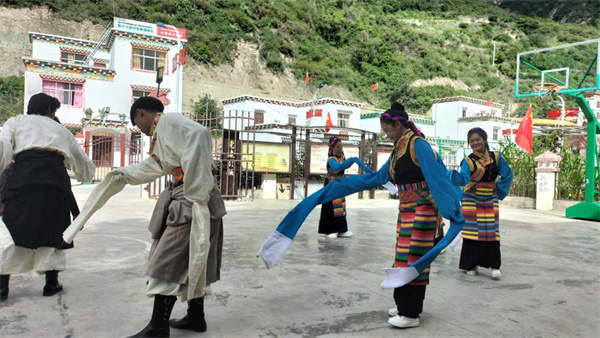
Villagers perform a traditional dance in Sangthak village in Zayul county in the Tibet autonomous region. [Photo provided to chinadaily.com.cn]
Kundrub, a village official, said in order to make good use of land resources, 30 households from the village started planting the Tunisian pomegranate in 2017 on 8.4 hectares of land. They harvested the fruits in 2022, and the village had 9.3 hectares of land planted with pomegranate again in the same year.
"Last year, thanks to the pomegranate plantation project, each household of the village received an average income of 3,000 yuan," Kundrub added.
In addition, the village's abundant forest resources also provide a source of income for the villagers.
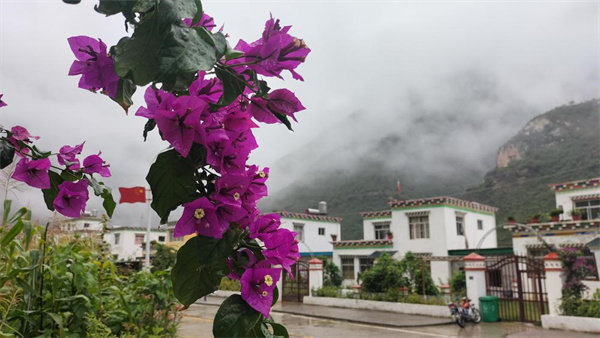
A view of Sangthak village in Zayul county in the Tibet autonomous region. [Photo provided to chinadaily.com.cn]
Tashi Dondrub, the operator of a cooperation in the village, said the village is the first in Tibet to grow matsutake every year due to its unique geographical location.
"The price of newly produced matsutake is very good. Our matsutake is shipped to major cities such as Guangzhou and Shanghai through the airports of Dali and Kunming," said Tashi Dondrub.
"The collection and trading of matsutake in our village provides more than 900,000 yuan of income for the villagers every year, and I really feel proud to see everyone's lives getting better and our hometown prospering quickly in recent years," he added.
Ma Chuanqiu, a village-based government worker in Sangthak, said in 2022, the per capita disposable income of the village reached 16,325 yuan, up by 12.2 percent year-on-year.
"The village always continues to develop the growth of collective economy as the goal requirement in the village, and it has basically achieved a diversified development model characterized by family inns and hot spring hotels."








